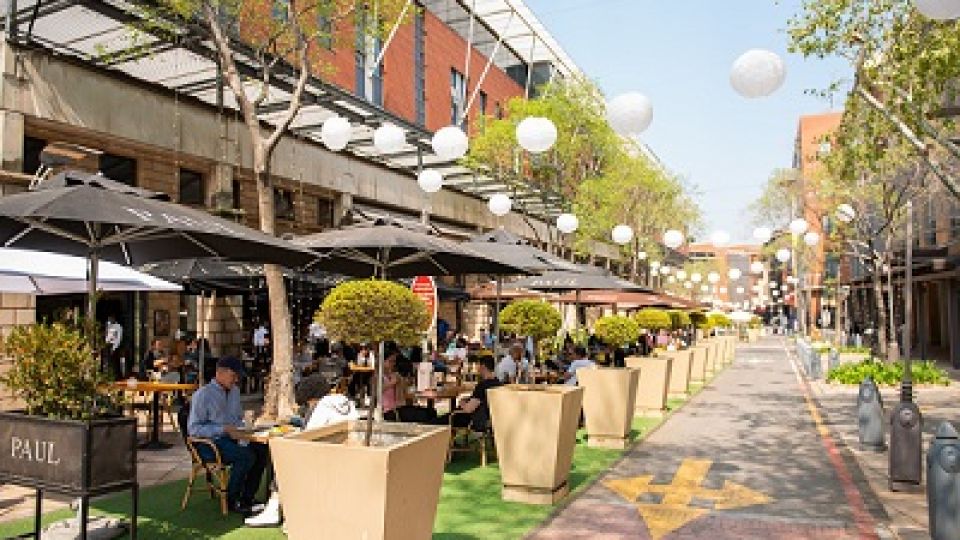by MTHULISI SIBANDA
JOHANNESBURG, (CAJ News) – MELROSE Arch, the mixed-use precinct, is leading the way with its sustainability prowess as South Africa migrates to an off-grid economy.
The facility located in Johannesburg has a thriving waste separating facility, underground cooling plant, gardens and rooftop solar system, providing hotels, businesses and residential properties with an unparalleled experience.
Renowned for its upmarket appeal and European street style aesthetic, Melrose Arch’s streets are lined with greenery.
The precinct has over 700 trees planted within its border as well as five internal garden spaces.
Melrose Arch has since expanded to house 106 000m² office space, 39 000m² retail space, 17 000m² hotel space, 29 000m² of residential and conferencing space, and 8 600m² accommodating health clubs.
The integration of sustainability operations has expanded parallel to the 199 600m², with the result of seamless integration.
Melrose Arch’s waste separation facility operates 24/7 separates paper, cardboard, metals, plastics and glass and sends these for recycling.
At the property’s approximately 30 restaurants, cafés and bars, food waste is separated at source.
The food waste recycling works by implementing efficient waste separation methods and commitment, allowing each restaurant to divert food waste from traditional waste streams.
In February 2024, of the 92,578 tons of waste collected across the precinct, 88 percent was recycled.
A total of 77,3m³ CO2, 712 447 litres of water and 312 494 kWh energy was saved. Additionally, the eco centre creates employment and enhances community participation in climate-relevant mitigation and adaptation measures.
The precinct boasts its own 1,471m² district underground cooling plant that operates 24/7. This facility includes eight chillers that are 2 722,94kW in size, 12 cooling towers and five building water pumps.
Operated by a Building Management System, the plant is energy efficient.
The cooling plant’s machinery and equipment have a nameplate capacity of 4 324,74KW, but for safety, are never operated at full capacity.
The kVA demand for the plant during the summer months is set at 8,5kVA.
The average monthly kWh consumption for the plant is 494 914.08kWh.
Melrose Arch precinct’s rooftop solar system is intricately accommodated across 16 different roof surfaces.
It currently features 7 811 solar panels and multiple inverters, generating approximately 3,2MW of clean energy annually.
Some of the commercial operators operate their own solar systems, providing further sustainability.
“We are committed to a target of 30 percent renewable energy across all of our properties by 2025, and becoming net zero for carbon emissions by 2050,” said Richard Collins, Area Vice President: Sub-Saharan Africa, Marriott International.
Melrose Arch is investigating the expansion of its current solar capacity, looking to increase its clean energy supply by a further 3MW per annum.
It is also exploring a battery plant solution, tied into its own grid, to be powered by the solar plant, which will provide the precinct with up to 4 hours of standby energy in the event of outages.
There are two sources of underground water.
Last year alone, the precinct saved 3,5 million litres of water. Furthermore, the precinct has a water back-up system with sufficient supply to keep operations flowing for up to 72 hours at any given time.
“Melrose Arch’s prominence in the commercial and residential sector is underpinned by its robust operational sustainability integration that includes solar power, waste separation, a cooling plant, water backup and more,” said Reiner Henschel, Operations Director at Melrose Arch.
“We are resolute in continually integrating sustainability into our operations, ensuring that the precinct maintains its position as a leader in environmental responsibility in South Africa,” he concluded.
– CAJ News

